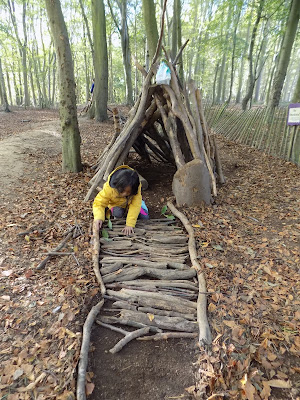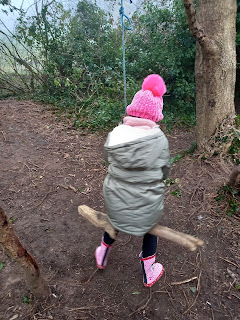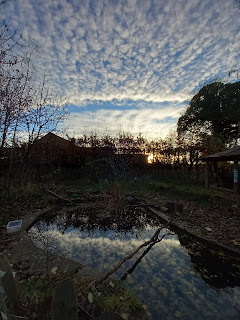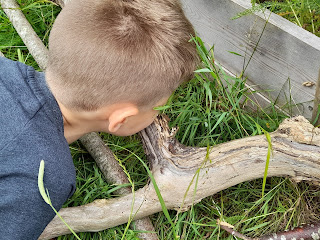How Forest School Helps
It is true that it is an investment rather than a charge. Whatever is decided upon is introduced to improve an aspect of school. A maths scheme of work to ensure everything is covered. A literacy programme to make it easier for all staff to use the same tools. Buying in PE trainers to improve the activities provided, to outsource the planning, and to cover PPA times for some or all staff. Whatever the cost, the aim is to enhance what the school provides.
Forest School is a pedagogy, but sessions are a 'service', bought in or delivered by schools with a purpose. What schools expect from these sessions will vary. It is difficult to measure a pedagogy and education in the 21st century needs to prove everything it does. Many schools adapt what they want from Forest School to include something else - some include it as PE, some require science to be focused on, some want it to link to themes and topics.
As Forest School is there to foster curiosity, motivation, resilience, teamwork, critical thinking, problem-solving, communication, investigation, and self-esteem (to name but a few aptitudes), it is difficult to create data to 'prove' it's worth. Asking Forest School to compromise on its scope to focus on a curriculum area reduces its efficiency and may even negate some of the underlying traits it seeks to improve.
There are skills that can be tracked, in fact, many independent Forest Schools are very good at keeping track of what their participants achieve. It can work in some schools too, especially if there are limited pupils involved. For small group work, or a couple of half classes a week, observations, notes, scribbled plans and photographs can produce a skills passport that demonstrates progress. If in a school sessions are for all classes, all year groups, each week, it quickly becomes very difficult to keep track in any meaningful written form. 200+ children tracked by one person each week is likely to end up as a tick chart at best.
This means schools can struggle to see a place for Forest School within their curriculum.
Covid has shifted perspective a little. Finally the majority of people accept that germs cause illness and not weather, and being outside is good for all. Studies on the effects of how simply being outside improves mental health are now mainstream. Sustainability and climate change are striding up the national agenda, there are calls for a GCSE in Nature, and for children to find both a connection to, an understanding, and to experience the environment they live in.
Coronavirus has also caused all sorts of gaps in childhood. Yes, for many schools the time missed in education is evident and there is a need to 'catch up' academically. There is also an obvious difference in children starting Reception Class who have missed out on much of the pre-school socialisation they would have been exposed to in previous years. Secondary Schools are noting the difference in the Year 7s who arrive having had a disrupted year 5 and 6. Even Colleges and Universities have seen a change in the 16-18-year-olds entering Further and Higher Education. It isn't just the altering education that students have been subjected to, it's the totally different world they've been in since March 2020. The adults around them are struggling to navigate this themselves are not always equipped to guide or support children. This is without considering the individual experiences of loss, illness, fear, financial change, and/or family changes.
If ever children have needed time to immerse themselves outdoors, follow their own interests, work with peers, run emotions out of their system, sit in solitude, explore, investigate, discover, experiment, chat, be silent, be still... Feel a little in control of their time, it's as we tentatively try to regain some kind of normal.
We are hosting Level 3 Forest School Training next term and the interest in the course far outweighs the take-up, even though we have deliberately deferred payment until the next financial year. Where to place the funding schools have, especially when they are under pressure to prove they are 'catching up' on 'lost learning' is a difficult decision. However many are. They're accepting that getting the underlying attributes that Forest School promotes is a necessary foundation for recovery from the pandemic.
I always say that I cannot provide evidence of the Forest School effect. I can say how children behave outside, how that may develop over time, what experiences they have been offered, even which they join in with, but the class teacher is the one who should see growing confidence, better engagement, and a different attitude to learning inside that supports that whatever is happening outside is having an impact.
There is plenty of evidence out there to say it does help.
I have anecdotal feedback to say it works.
I see how Year 6 need to run more than any other year group - year in/year out.
I see how EYFS & KS1 are endlessly curious.
I see how KS2 apply what they are learning inside to activities outside.
I see how much the children look forward to Forest School, how much they want to be involved, how much prior knowledge they bring, how much they explore...
In a perfect world it would be in every school, Primary and Secondary.
It takes up time in the school week but gives back to every other lesson.
Forest School may help with PPA cover, may deliver some geography or science lessons, but more importantly, it will boost motivation, resilience, self-esteem, promote good mental health, and make children enjoy school more.











Comments
Post a Comment